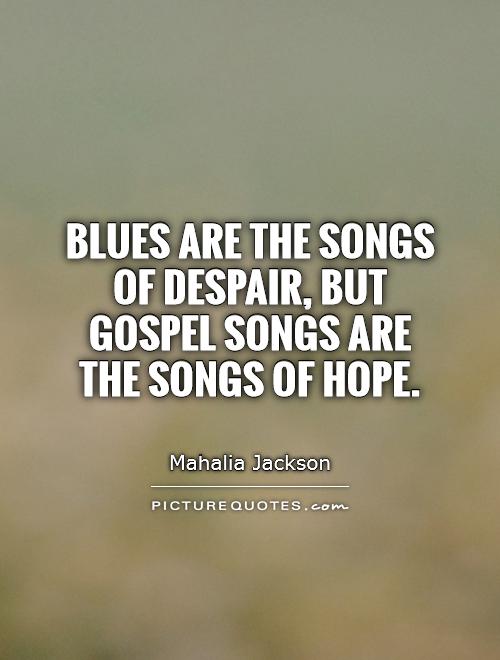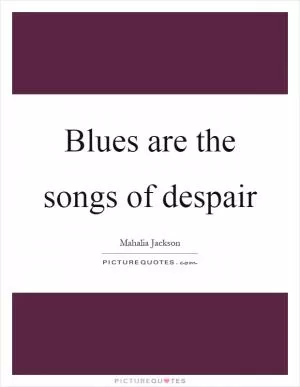Blues are the songs of despair, but gospel songs are the songs of hope

Blues are the songs of despair, but gospel songs are the songs of hope
Mahalia Jackson, often referred to as the Queen of Gospel, was a powerful and influential figure in the world of music. Her soul-stirring voice and heartfelt performances touched the hearts of millions around the world. Jackson's music was deeply rooted in the African American spiritual tradition, and she used her talent to spread messages of hope, faith, and resilience.One of the key distinctions between blues and gospel music is the emotional tone they convey. Blues music is often associated with themes of despair, heartache, and struggle. The lyrics of blues songs typically reflect the hardships and challenges faced by individuals, and the music itself is characterized by a melancholic and soulful sound. In contrast, gospel music is rooted in themes of hope, redemption, and faith. Gospel songs are meant to uplift and inspire listeners, offering messages of comfort and reassurance in times of trouble.
Mahalia Jackson understood the power of music to convey these contrasting emotions. She once famously said, "Blues are the songs of despair, but gospel songs are the songs of hope." Jackson believed that music had the ability to heal and uplift the soul, and she used her platform to spread messages of hope and faith to her audiences.
Throughout her career, Mahalia Jackson performed countless gospel songs that resonated with listeners on a deep emotional level. Her rendition of classics such as "Amazing Grace" and "Precious Lord, Take My Hand" became iconic in the world of gospel music. Jackson's powerful voice and heartfelt delivery brought a sense of comfort and solace to those who listened to her music.












 Friendship Quotes
Friendship Quotes Love Quotes
Love Quotes Life Quotes
Life Quotes Funny Quotes
Funny Quotes Motivational Quotes
Motivational Quotes Inspirational Quotes
Inspirational Quotes